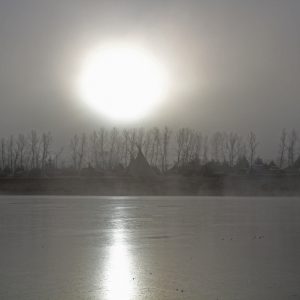The Stream, December 2: Australia Slow To Improve Inland Water Quality For Great Barrier Reef
The Global Rundown
Runoff polluted with sediment and fertilizer continues to stymie efforts to improve the health of the Great Barrier Reef in Australia. Military leaders around the world are calling for action on climate change in order to avoid security threats. The future is uncertain for Canada’s proposed Energy East oil pipeline, which has been opposed over concerns about water. A pilot project in Cambodia is using guppies to fight the mosquitoes that carry dengue fever. Energy created from sewage is not only powering a Danish city’s wastewater plant, but also its drinking water system.
“Climate change is the greatest security threat of the 21st century. We’re going to see refugee problems on an unimaginable scale, potentially above 30 million people.” –Major General Munir Muniruzzaman, chairman of the Global Military Advisory Council on climate change. His comments come amid the latest round of warnings from top military advisors, who see mass migration and conflict as inevitable consequences if nothing is done to curb floods, droughts, food scarcity, and extreme storms. (Guardian)
In context: Learn why climate change is considered a “threat multiplier” capable of exacerbating other risk factors for conflict, such as poor governance or inadequate infrastructure.
By The Numbers
200,000 people Number living in Aarhus, Denmark’s second largest city, who are served by a drinking water system that is now completely powered by biogas generated from the city’s wastewater treatment plant. New Scientist
In context: Find out how biogas from wastewater is powering the East Bay Municipal Utility District wastewater treatment plant in California — and providing extra electricity to the Port of Oakland.
3,000 households Number in Cambodia’s Kampong Cham province that are taking part in a pilot project to deploy guppies in water barrels to reduce the prevalence of dengue-carrying mosquitoes. Reuters
Science, Studies, And Reports
Australia still has a long way to go to reduce nutrient and sediment pollution to meet water quality goals for the Great Barrier Reef, according to a government report submitted to Unesco. Progress was poor on curbing runoff from farm fertilizers and limiting tree clearing, the report said, and needs to be accelerated. Guardian
On The Radar
Construction of TransCanada’s proposed Energy East oil pipeline, which would carry more than a million barrels per day from Alberta to the Atlantic coast in New Brunswick, may be less likely after Canada approved two other pipeline routes this week. The Energy East project has faced stiff opposition in Quebec, where the province’s premier cites concerns about the risk to freshwater supplies. Bloomberg
A news correspondent for Circle of Blue based out of Hawaii. She writes The Stream, Circle of Blue’s daily digest of international water news trends. Her interests include food security, ecology and the Great Lakes.
Contact Codi Kozacek





